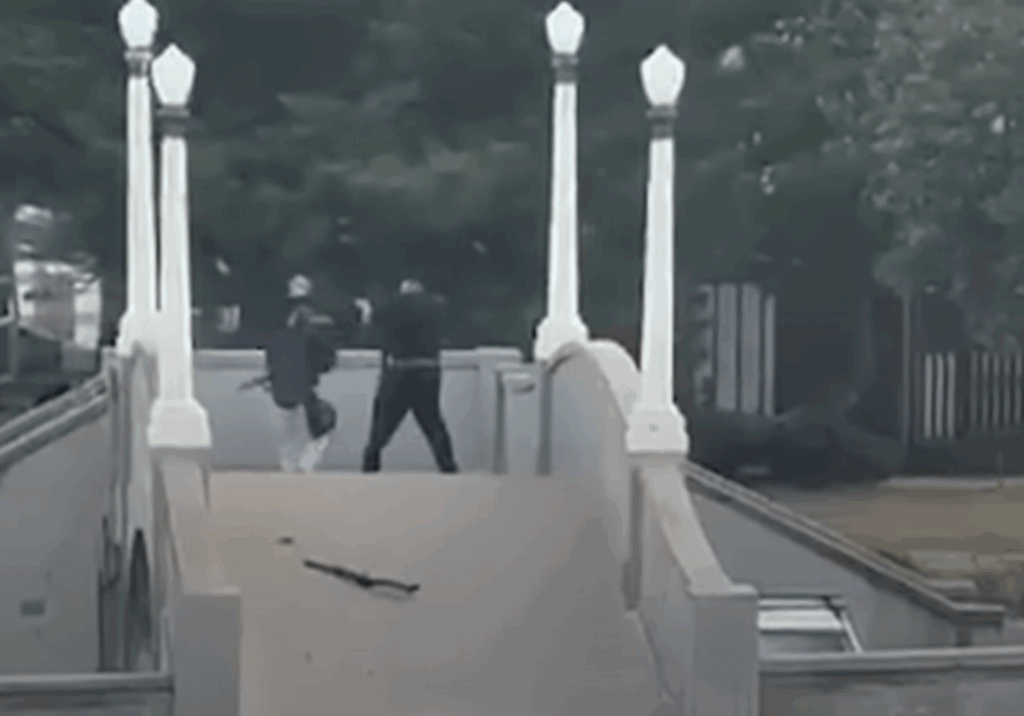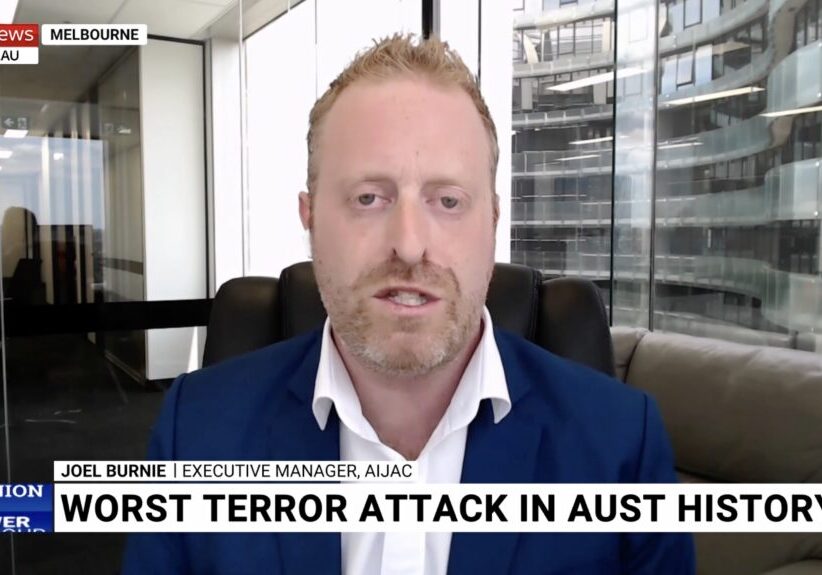Australia/Israel Review
Canary in a Coal Mine
Jul 1, 2007 | Allon Lee
By Allon Lee
 |
 |
 |
| Ayaan Hirsi Ali: Champion of liberal values |
There is something of the 1960s slogan “the personal is the political” in Ayaan Hirsi Ali’s life story – a remarkable life that has formed the basis of her candid views on Islam, Muslims and the West.
The Somali-born writer, feminist and Muslim apostate became famous in Holland in 2003 as a Dutch MP unafraid to express controversial views on Islam.
But it was the 2004 murder of her artistic collaborator, Dutch filmmaker Theo van Gogh, with whom she had made a controversial film about women under Islam that lifted her profile onto the global stage. His killer made it clear that Ali was next. She has lived under tight security ever since.
Later, questions over irregularities in her 1992 refugee application surfaced and the Dutch parliament forced her out, prompting Ali to move to the United States.
The 38-year-old author of two books – The Caged Virgin and Infidel – has been called the female Salman Rushdie. Her writing and speaking focuses on topics that include her ritual genital mutilation, flight, arranged marriage and what her experiences as a Muslim woman taught her about the need to universalise the sorts of individual freedoms taken for granted in the West.
For a woman shadowed 24/7 by security because of death threats, as a figure of hate for some Muslims and an irksome critic of political correctness to many Westerners, Ali is remarkably composed and calm.
Herself an atheist, Ali wants to convince Muslims that practicing one’s faith is fine so long as it remains in the private sphere.
And, she stresses, the battle to confront Islamic extremists is not a zero-sum game, and does not require Muslims to relinquish their faith.
“[Muslims] have to accept that men and women are equal. You have to accept that gays and heterosexuals are equal before the law. You have to accept that as a Muslim individual if you see immoral behaviour on the streets, even if it’s committed by your own sister or own brother, you cannot correct them with violence.”
Ali’s critics often portray her message that Islam is essentially unreformable as implying that she believes the religion must be abandoned totally, but that is a misrepresentation, she explains.
“We have to look to Muslims and not Islam itself,” she says.
“The relationship between the Muslim and his God is one of total submission, it’s not one of questioning. So anybody who tries to change anything in the Koran or to modify what God has ruled, God has laid down, is going to commit the gravest sin possible which is shirk, elevating oneself to a level with God and then, of course, you are going to have to die.”
She argues that the Muslim agenda has been hijacked by Islamists or jihadists who say “you are not a true Muslim if you accept any form of government that’s not God’s government.”
The concept of reform is not totally alien to Islam but attempts over the years have largely failed, she adds.
She says the West must accept that radical Islam is a totalitarian threat that needs to be dealt with in the same manner as Communism and Nazism.
“I think European societies, Western societies are used to confronting collectivist fascist movements and have successfully done so. During the Cold War, there was ideological combat telling people Communism is bad and here is why it is bad. We have a better system, it’s called capitalism. Capitalism is not perfect but here’s why it’s better than Communism.”
Although the battle against Islamism is overwhelmingly a battle of ideas, Ali is convinced that military solutions are valid.
“If freedom is threatened in a way, you have to defend it with arms… It has to be the last resort.”
Ali is nonetheless confident of the outcome of this struggle, however. Muslims will ultimately not be able to hold back the tide of modernisation and reform, she argues.
“Modernity is possible and also unavoidable. What we are now discussing since the 11th of September is ‘what is the price at which modernity comes?’ How much bloodshed? What is it going to take the Arab Muslim nations to find the way towards modernity without the pain? And every society has gone through that pain. It’s just that in a nuclear reality that’s devastating.”
Ali identifies a variety of factors that contribute to the sense of victimisation and anger in Muslim communities that Islamists skilfully exploit.
First, most Muslim countries are organised along traditional tribal lines operating according to rigid shame and honour behavioural codes. “You blame others for what is shameful, you claim…what you consider successful,” Ali explained.
Another important contributor to a Muslim culture of victimhood and perceived Western oppression “is the one-sided story that is told about imperialism, that is told about the West,” she said.
“Populations in Arab Islamic societies all know what the West has done wrong … but they are not told the whole story. There were Western imperialists but there were also Western people who were against it and succeeded in getting rid of the whole imperialism. And that brings along with it that sense of victimisation and enforces that sense of victimisation and also preserves the power of all the dictatorships there.”
Jihadist propagandists thrive on their ability to conjure up enemies through conspiracy theories and are then able to convince people to commit acts of violence in the name of Islam, she said.
Ali argues the West’s culture of self-questioning and political correctness encourages certain Muslim migrants to the West to believe that the jihadists are correct in their pronouncements upon its ills.
Ali doubts the efficacy of dialogue between democratic countries like the United States and a totalitarian state like the Islamic Republic of Iran.
“That sort of dialogue is always very difficult. I yearn that I am wrong, but I am convinced that [Iranian President] Mahmoud Ahmadinejad wants that bomb and will use it when he gets it. Under such circumstances, I think that not only the United States but also the entire free world should do all they can to prevent him from getting that bomb.”
The consequence of Iran acquiring nuclear weapons would be a regional arms race with Egypt, Saudi Arabia and Turkey following suit, she said.
Iran is not the only Islamist nation that the West should be concerned about. Ali identified Pakistan, which possesses nuclear weapons, as being on the brink of takeover by jihadists.
“[Pakistan President Pervez] Musharaf, dictator. What should we call him? A dictator ally? [Jihadists] made three or four attempts on [his] life. They are gaining power. That power is legitimate in the sense that they persuaded large sections of society to vote for them. Parliament, in fact, now has an Islamist majority and if they oust him, or if he falls down dead, the next ruler of Pakistan is going to be a jihadist ruler with a nuclear bomb.”
Ali counselled against confusing Muslim countries like Indonesia, which basically adheres to a separation between mosque and state, with Islamist countries like Iran that are constitutionally-based on Koranic or Sharia law.
The former are under attack from jihadists, while the latter have already fallen.
“I think we should stop confusing geography and people with a doctrine. Indonesia is different from Turkey, which is different from Somalia. All these individual Muslims are also very diverse and of course have to react to challenges they have to face. But the doctrine itself, the Koran, the Hadith, which is the example of the Prophet Muhammad – that is uniform. People tell us [about] the difference between [jihadist] Shi’ites and Sunnis but it’s minimal. It’s irrelevant, in its challenge of liberalism, and also irrelevant to its challenge to the position of women.”
Ali says the canary in the coal mine that will show to what extent Islamist totalitariamism has been contained will be the level of freedom attained by women in Muslim communities. However, she says no one should be holding their breath.
“Women gain the most from any individual freedom and any concept of individual freedom that is put into practice. So the less Islam in the public space, the more freedom for women. The more freedom, the more opportunities for them to get an education, more opportunities to become financially independent. Of course, when you push Islam out of the public space, [you get] more opportunities for women to be owners of their own bodies, sexual freedom. That’s a long time project. It’s going to be a very, extremely difficult project because it lies at the core of the Islamic teaching, the opposition to women…Any attempts to improve that will be seen as an attack on Islam…
“Once, and this is a long time project, once a few generations of women are freed or become free then I think the threat of the Islamic fascist movement is going to become far less [significant] than it is now. But [at present] all these women are just baby machines.”
![]()
The above is based on an interview with Ayaan Hirsi Ali in Melbourne on June 6, 2007, which included other journalists as well as representatives of the Australia/Israel Review.
Tags: Indonesia, Islamic Extremism






